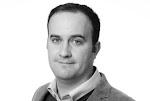Here is another excellent case of crowdsourcing. In this example a mobile game helps to gather data for a study on dementia. It tests people's navigation skills in a simple sailing simulation and also their sense of orientation. One interesting finding is that coastal communities appear to have better spatial skills and it is possible these people may have received a genetic boost from viking blood! As a coastal dwelling Irishman, I have presumably benefited from the plentiful viking raids over the years - many of our big cities were founded by them.


Very interesting post. I wonder if the skills of the coastal dwellers are due to the presence of the seashore as a permanent un-moving landmark and point of reference?
ReplyDeletepossibly - and pre compass it would have been vital in cloudy conditions!
ReplyDeleteI think there may be a Darwinian effect as well. If living on the coast and having to navigate coastal waters were necessary skills for survival, then those who weren't good at it wouldn't survive very long.
ReplyDeleteWell as two ex-sailors Dave, we are both obviously at the top of the pyramid.
ReplyDeleteI think I read a study once which revealed the opposite effects being exhibited by city dwellers( limited long distance spacial skills). The findings where the effects where environmental rather than hereditary.
ReplyDeleteSo large urban canyons limits your view of the horizon and so you have poorer navigation skills? That's interesting. Lots of the early civilizations would have established themselves at river mouths or near oceans for trade, food and fresh water - i wonder how this applies to pre 'built up' society.
Delete